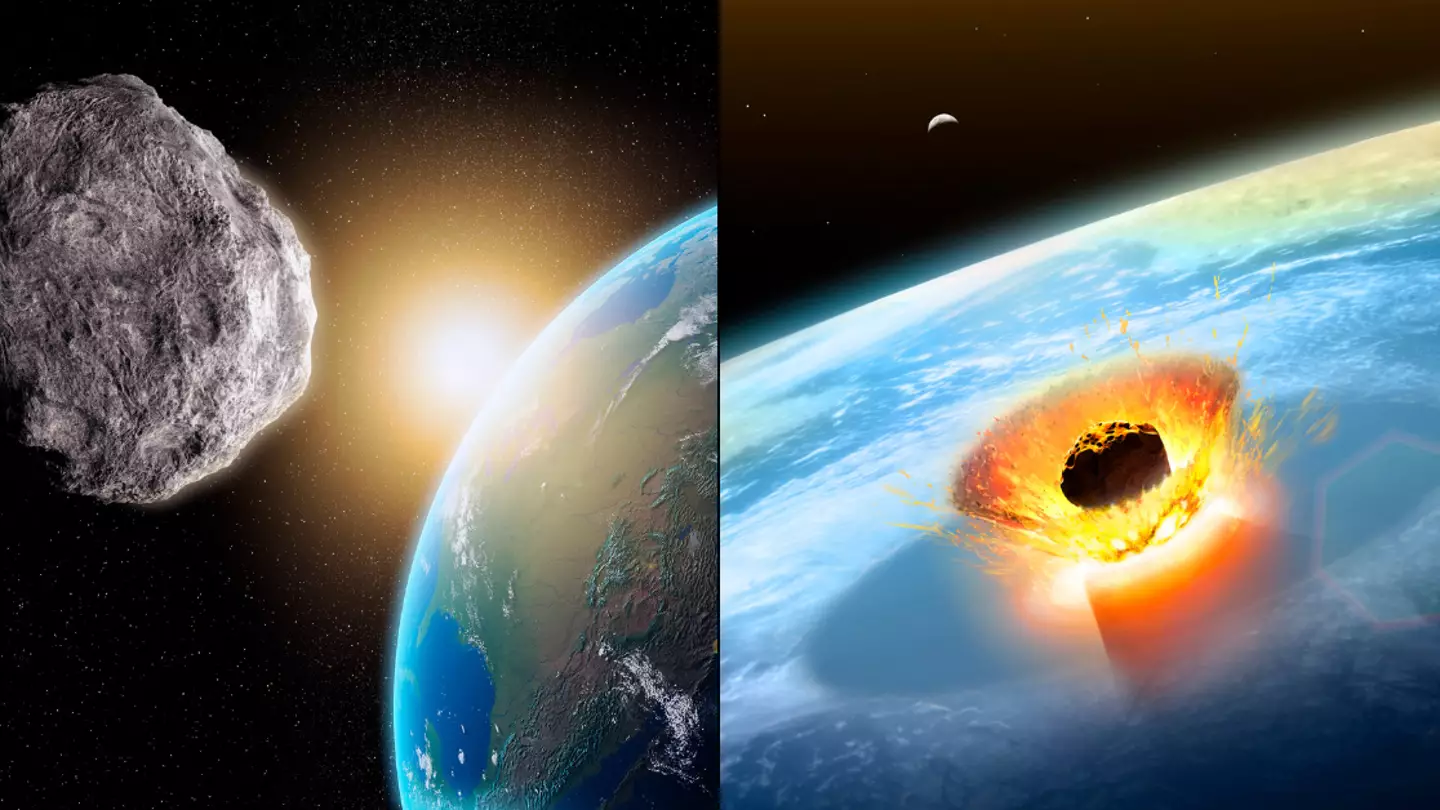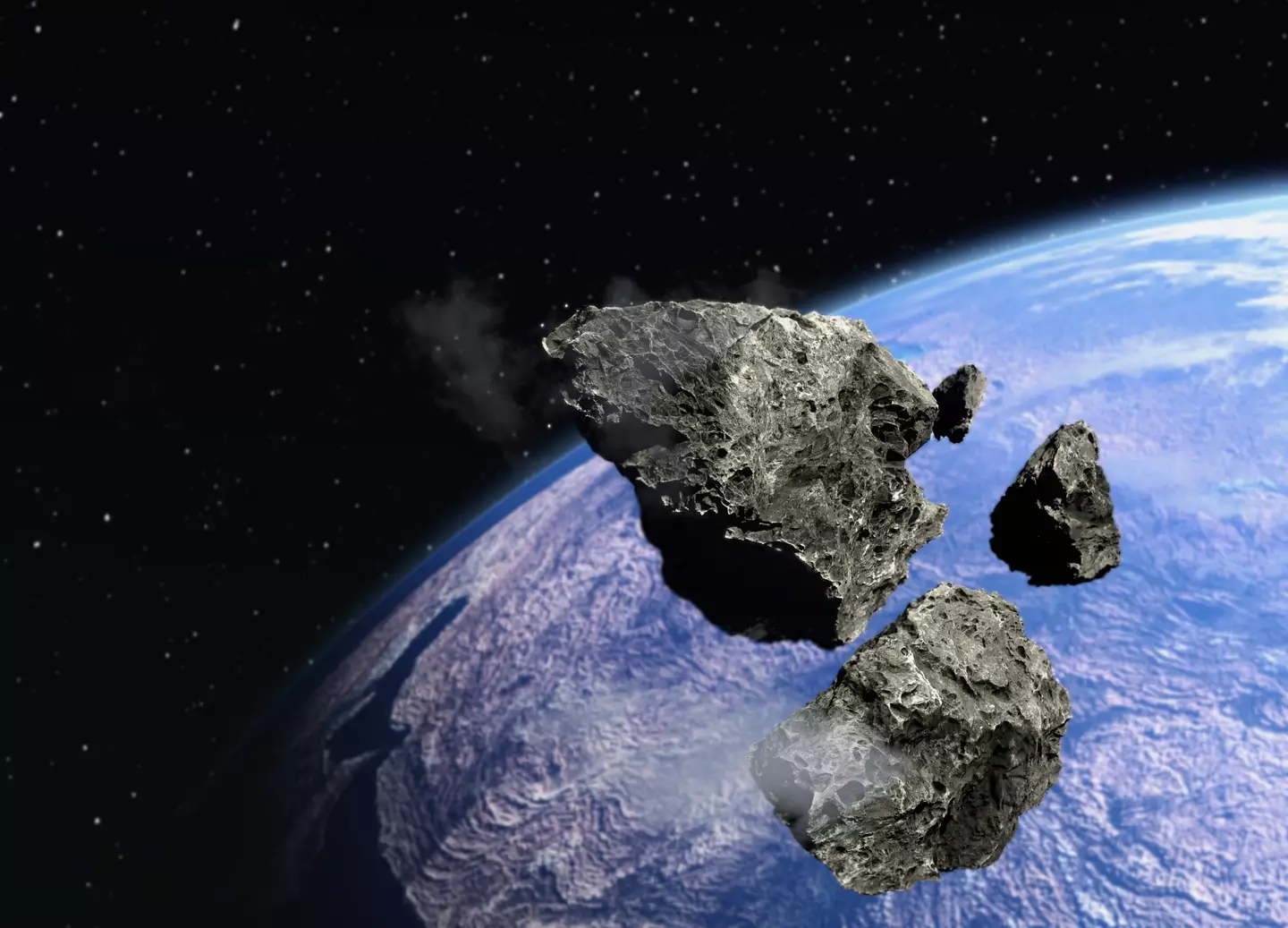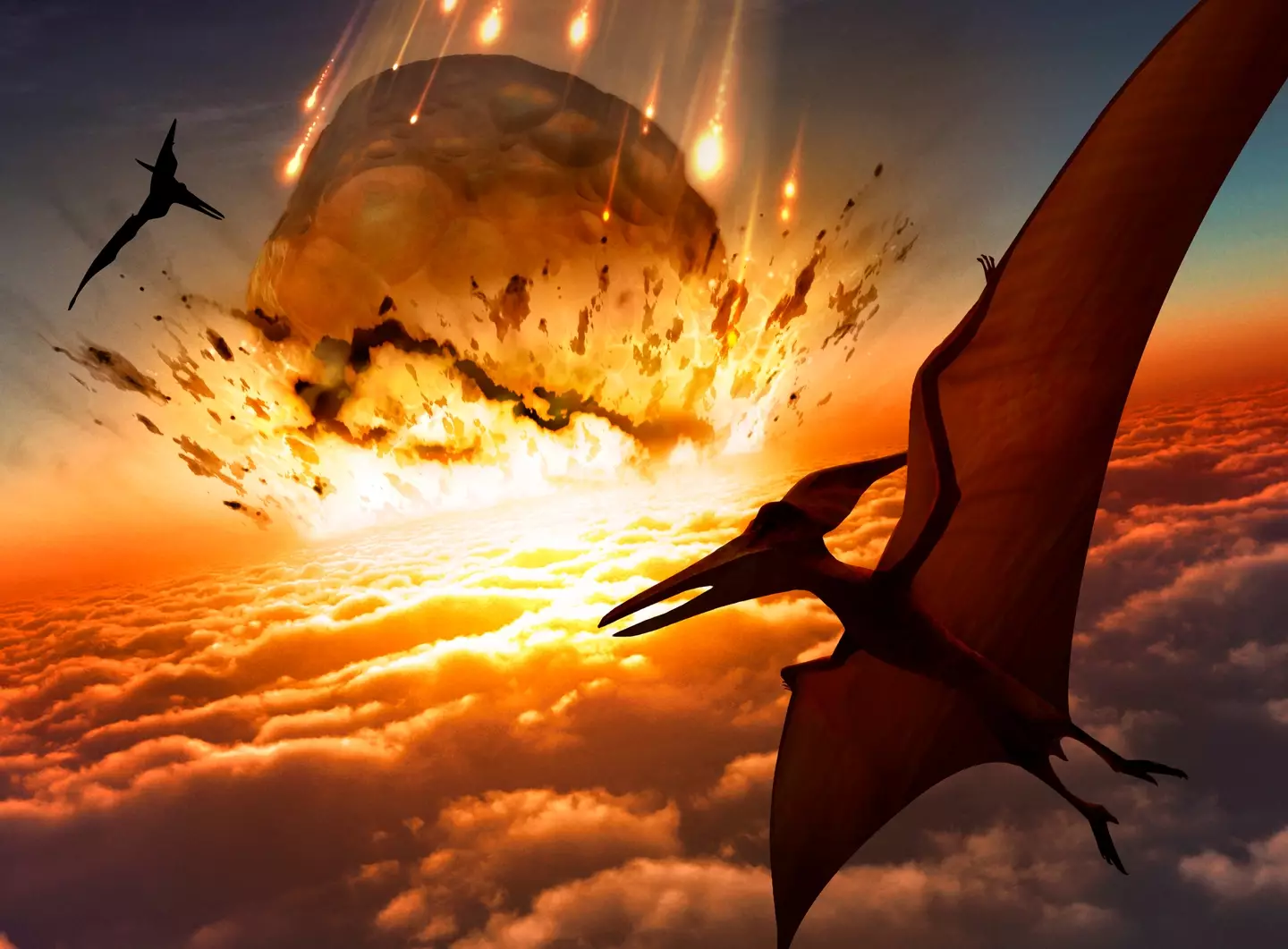
Many millions of years ago the dominant creatures on the planet were going about their normal lives of eating, sleeping, fighting and f**king when a big asteroid came down and kablamo! Life on Earth was irrevocably changed.
When that one came down, it wiped out about three quarters of all plant and animal life on this rock.
Now we're the dominant creatures on this planet, but the possibility that a chunk of rock hurtling through space might come crashing down and spell doom for us all is still very present.
Advert
Space hasn't run out of asteroids that may come our way, though we'd have more advance warning than the dinosaurs.
We've got all sorts of instruments and gizmos to plot the paths of asteroids so we can spot them coming and plan accordingly.
That plan would first figure out how much time we had to respond, as we could have years or even decades to mount a response.

In that case, the asteroid could well be deflected off-course, but if it's going to hit within five years it'll have to be destroyed.
We've already practiced this on other asteroids not headed for our planet so if our warning system pings up a problem, it's something we might be able to handle.
It's better than the dinosaurs - at least they didn't even have spaceships and satellites.
One of the planet's greatest asteroid experts is planetary scientist Dante Lauretta, the leader of NASA's OSIRIS-REx Asteroid Sample Return mission which successfully landed on an asteroid called Bennu and collected samples which it dropped off back on Earth.
Speaking to Inverse, he said that the chances of us being struck by an asteroid weren't high, but it was something we'd need to think about.

He said: "The risk of an asteroid impact is real. It’s small. But the consequences are huge.
"We live our lives with our heads down with all our daily struggles. But every once in a while, you look up, and you go, you know, there could be something coming, and maybe we should think about it."
He also said that we had new facilities to spot asteroids, though lamented the closure of some places like the Arecibo radar system in Puerto Rico, which was damaged by a hurricane and is not currently being rebuilt.
Lauretta said that learning about asteroids and the 'unbelievably powerful' forces in the universe means 'you can't help but feel tiny', but that doesn't make the wonders of space any less of an 'amazing place to explore'.
Topics: Space, Science, NASA, Technology